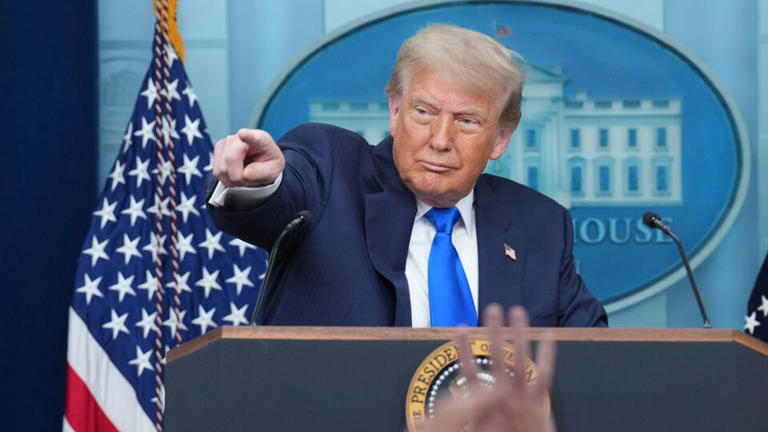Trump’s ‘One Big Beautiful Bill’ Passes First Senate Test with 51-49 Vote, Sparks Economic and Political Storm
In a dramatic political development in Washington, former U.S. President Donald Trump’s ambitious tax and spending reform proposal, famously named the ‘One Big Beautiful Bill,’ has successfully cleared its first major Senate hurdle. The legislation, backed by the Republican-majority Senate, passed with a narrow 51-49 vote in a rare late Saturday session, triggering both celebrations and controversy across the nation. Trump immediately took to his social media platform, Truth Social, hailing the vote as a “great victory” and expressing gratitude to key Republican lawmakers Rick Scott, Mike Lee, Ron Johnson, and Cynthia Lummis for their instrumental roles in the legislative push.
The bill, which spans an expansive 940 pages, represents one of Trump’s most significant policy efforts in his bid for a 2024 comeback, addressing a wide array of campaign promises. These include sweeping tax cuts, increased military spending, stricter border control measures, immigration reforms, and an overhaul of entitlement programs. The White House claims the bill is aimed at bolstering the U.S. economy, reducing government waste, securing the southern border, strengthening the military, protecting veterans, safeguarding the Second Amendment, and ensuring Medicaid serves the truly needy.
However, the process has not been without intense political resistance. Senate Democrats and two Republicans opposed the bill and demanded that the entire document be read aloud in the chamber, a move that significantly delayed proceedings. The legislation is now set to undergo 20 hours of formal debate, followed by rounds of amendments, with the final version expected by June 30. According to reports by Reuters and the Associated Press, Vice President JD Vance played a pivotal role in rallying support, even casting a tie-breaking vote to push the bill past its first legislative checkpoint.
Despite the administration’s optimistic messaging, independent analyses have raised serious economic and humanitarian concerns. A review by the nonpartisan Joint Tax Committee estimates that the bill’s tax provisions alone could reduce government revenue by $4.5 trillion over the next decade. This could significantly compound the already towering $36.2 trillion national debt. While the Trump administration argues that the bill would lower the annual deficit by $1.4 trillion, independent watchdogs warn of deep economic repercussions.
Further controversy surrounds the potential human impact of the bill. The Congressional Budget Office (CBO) warns that the House version of the tax plan could result in 10.9 million Americans losing healthcare coverage, while around 3 million people could be cut off from essential food aid programs. In contrast, top earners could receive a tax benefit of nearly $12,000, while the poorest Americans might suffer an average financial hit of $1,600.
Adding to the growing backlash, tech billionaire Elon Musk openly criticized the bill on X (formerly Twitter), calling it “utterly insane and destructive.” Musk warned that the bill could “destroy millions of jobs” and cause “immense strategic harm” to the U.S. economy and global competitiveness.
Democrats have vowed to use the amendment phase to reverse many of the proposed Republican cuts, especially those targeting federal healthcare programs for the elderly, disabled, and poor, along with food assistance for low-income families. As the political storm intensifies, all eyes now turn to the final stages of the bill’s passage, which could redefine the U.S. economic and social landscape for years to come.
For video news, visit our YouTube channel THE OLIGO.

